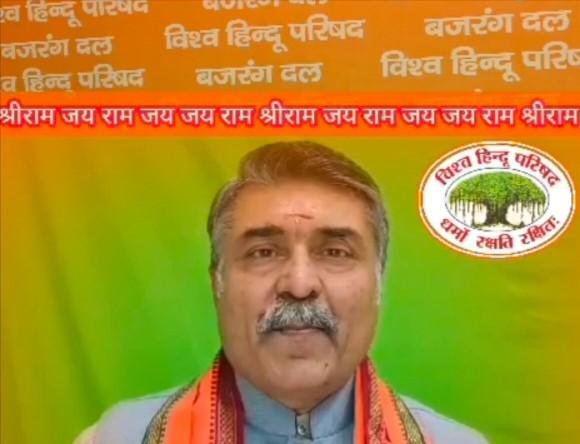The Vishwa Hindu Parishad (VHP) Delhi has urged Hindu families across the state to join in a collective recitation of the Hanuman Chalisa. This initiative aims to foster community spirit and strengthen religious ties among Hindus in the region.
VHP Delhi State President, Shri Kapil Khanna, share details of the event in a video message, stating that special Hanuman Chalisa recitations will take place in temples throughout Delhi on the upcoming Tuesday and Saturday. He encouraged all Hindus to participate in these gatherings at their local temples, emphasizing the importance of collective prayer in promoting unity and devotion.
In addition to the recitation, Khanna called upon the community to pray for the establishment of a government in Delhi that prioritizes Dharma Rakshak (protector of religion) and Rashtra Rakshak (protector of the nation) values. This appeal reflects a broader desire among some groups for governance that aligns with their religious and cultural beliefs.
VHP Delhi State Minister, Shri Surendra Gupta, also addressed the significance of the event in a separate video message. He urged various organizations, including business and religious groups, to join in this large-scale initiative. Gupta highlighted the need for vigilance against political parties that, in his view, support extremist elements covertly, suggesting that such affiliations pose a threat to societal harmony.
The call to action has resonated with many within the community, including Shri Jagjit Singh Goldy, the State Convenor of the Bajrang Dal. Goldy has encouraged Bajrang Dal members and all Hindus to participate in the recitation events in significant numbers, reinforcing the message of unity and collective faith.
The Hanuman Chalisa, a revered Hindu devotional hymn dedicated to Lord Hanuman, is known for its spiritual significance and is often recited for strength, protection, and blessings. The VHP’s initiative to organize collective recitations is seen as a way to not only enhance spiritual engagement but also to galvanize community support for their broader socio-political objectives.
As the event approaches, the VHP is likely to mobilize resources and volunteers to ensure a successful turnout, reflecting their commitment to fostering a strong Hindu identity in the capital. The organization’s efforts are part of a larger trend among various Hindu groups seeking to assert their presence and influence in the socio-political landscape of India.
The call for participation in the Hanuman Chalisa Paath has sparked discussions within the community about the role of religion in public life and governance. Supporters view this as an opportunity to reinforce their cultural heritage, while critics may raise concerns about the implications of such religious mobilization in a diverse society.
As the dates for the recitation draw near, the VHP’s initiative is expected to attract significant attention and participation, highlighting the ongoing interplay between faith, community, and politics in contemporary India.








